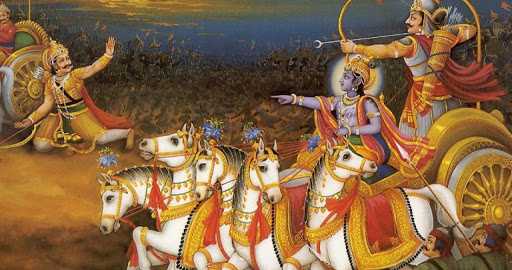Popularizing the Indian Culture
Op-EdAnirudh Sampath
Anirudh Sampath reflects on the relevance of culture to the current world and why India needs to start exporting and popularising this facet.
The lands of the East! Far far away lies a mystical, fascinating land home to austere yogis and saints, immersed in practicing arcane rituals in their abode, The Himalayas. This is how India and other Eastern countries were perceived to be through the lenses of the West. Culture is truly an integral part of any society. It would be apt to say that culture is that fabric that binds society together.
For ages, the West has held the misconception that their way of life was superior, and thus went on a relentless conquest to "educate" other societies to conform to their utopian ideologies of a perfect society. The prevalence of visual media in the modern world has helped people understand, value, and celebrate who they are. Instead of being swayed by archaic notions of what different societies are, we can step into their shoes and gain a firsthand perspective into others' way of life.

K-pop and anime are wonderful examples to illustrate this fact. One-Punch Man, BTS, Naruto have established an unwavering fan base throughout the world. Most of our childhood was coming home from school, throwing your backpack, and prepping yourself to watch your favorite show, Doraemon or Ninja Hattori. These shows have left indelible memories that will be cherished by our generation for years to come.
Storytelling has always been a field Indians have been exceptionally good at. The heroic tales of Lord Rama and the bloody battle of the Mahabharata have been passed down through generations. Lately, Indian filmmakers have been living up to their vibrant past, expanding cinematic horizons with superhit ventures like Mirzapur and Bahubali. Bollywood has been relatively successful in permeating into Chinese culture, with movies like Dangal and PK that have made a killing in Chinese theaters. However, most parts of the Western hemisphere are still isolated from this influence. Exporting our culture is not a new idea developed recently. India has been influencing and being influenced by other countries for centuries.

Exporting and commercializing Indian Culture is a sure-shot way to improve cultural appreciation and break prevailing stereotypes that have shackled Indians for centuries. Imagine an American kid eagerly waiting to come home from school to watch his favorite show, Chotta Bheem. However, while we're on this quest to popularize and share our rich culture with the world, the difference between cultural pride and cultural fanaticism is a fine line we tread. Hoping to popularize our culture is a two-way trade of sharing your culture while respecting other cultures. The euphoric and convivial atmosphere where contrasting cultures is something that defines India as a country.
It's time that we up the ante on our efforts to popularize Indian culture. Yoga and Indian meditation techniques have been actively embraced by people from various corners of the world. The idea that Indian Culture can be exported and popularized has been supported by several instances of foreigners permanently immigrating to India in search of Inner peace and happiness.
It is critical that Indian filmmakers try to make films that are relatable and depict the daily lives of the common man. Most of the stories on the Indian film scape for years have been combined to banal themes that have been recurring.
The recent flurry of creative and engaging films like Tumbadd, Masaan, and Super Deluxe indicates that Indian Cinema is heading towards preparing itself to grab the limelight on the world stage. It is important that we personally make efforts to keep our culture alive rather than letting them be obscured down the annals of time.